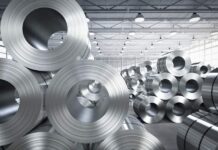Key Takeaways:
- Regular maintenance of industrial air compressors is essential for optimal performance and to prevent breakdowns.
- Maintenance helps prevent costly breakdowns, maximize performance and efficiency, and extend the lifespan of the air compressor.
- Common issues in industrial air compressors include air leakage, pressure drop, and electrical system failures.
- Top maintenance tips include checking and replacing air filters, regular oil changes and lubrication, and cleaning and inspecting compressor components.
- When choosing a service provider for industrial air compressor repair, research and evaluate companies, check for certifications and industry experience, and review customer feedback.
The Importance of Regular Industrial Air Compressor Maintenance
Regular maintenance of industrial air compressors is vital for ensuring optimal performance and preventing costly breakdowns. By implementing a comprehensive maintenance plan, you can maximize efficiency, extend the lifespan of your equipment, and avoid unexpected downtime. Let’s explore the key reasons why regular maintenance is essential for industrial air compressors.
1. Preventing Costly Breakdowns
One of the primary reasons to prioritize regular maintenance for your industrial air compressor is to prevent costly breakdowns. Neglecting maintenance tasks can lead to various issues such as component failures, air leaks, or electrical system malfunctions. These breakdowns not only result in expensive repairs but can also halt your operations, causing significant downtime and loss of productivity. By conducting routine maintenance, you can identify and address potential problems before they escalate, saving you from costly repairs and production delays.
2. Maximizing Performance and Efficiency
Regular maintenance plays a crucial role in maximizing the performance and efficiency of your industrial air compressor. Over time, dirt, dust, and debris can accumulate in the air filters and other components, impeding airflow and causing a drop in efficiency. By cleaning or replacing air filters regularly, you ensure proper air filtration and prevent unnecessary strain on the compressor. Additionally, lubricating moving parts and checking for pressure drops can help optimize performance and reduce energy consumption. By consistently maintaining your air compressor, you can achieve peak efficiency and lower operating costs.
3. Extending the Lifespan of your Air Compressor
Investing in an industrial air compressor is a significant financial commitment, and you want to ensure it lasts as long as possible. Regular maintenance is key to extending the lifespan of your equipment. By adhering to recommended maintenance tasks such as oil changes, lubrication, and cleaning, you can prevent wear and tear on vital components, reducing the risk of premature failure. Taking care of your air compressor will help it operate smoothly and reliably for years to come, saving you from the need for frequent replacements and costly equipment purchases.
Common Issues in Industrial Air Compressors
Industrial air compressors can experience various issues that require prompt attention and repair. Understanding these common problems and their solutions can help you troubleshoot and minimize downtime. Let’s take a look at some of the most common issues faced by industrial air compressors.
1. Air Leakage Problems and Solutions
Air leakage is a common problem in industrial air compressors and can significantly impact efficiency and performance. Leaks can occur in various components such as pipes, fittings, valves, or connectors. One way to detect leaks is by conducting regular leak detection tests using ultrasonic leak detection devices. Once leaks are identified, they should be promptly repaired by replacing gaskets, tightening connections, or repairing damaged components. Regular inspections and maintenance can help prevent and address air leakage issues, ensuring optimal performance and energy efficiency.
2. Identifying and Fixing Pressure Drop Issues
Pressure drop is another prevalent issue in industrial air compressors. It refers to the decrease in air pressure between the compressor and the point of use. Pressure drops can occur due to factors such as undersized pipes, excessive pipe lengths, or clogged filters. To identify pressure drops, it is essential to measure and monitor the pressure at various points in the system. Once detected, the issue can be resolved by increasing pipe diameter, minimizing pipe lengths, or cleaning/replacing clogged filters. Regular inspections and preventive maintenance can help detect pressure drop issues early on and prevent efficiency losses.
3. Troubleshooting Electrical System Failures
Electrical system failures can hamper the operation of industrial air compressors. Issues such as motor failures, control panel malfunctions, or wiring problems can lead to sudden shutdowns or erratic functioning. Troubleshooting electrical system failures requires specialized knowledge and expertise. It is advisable to consult a qualified electrician or a professional repair service provider to diagnose and repair electrical issues. Regular inspection and maintenance of electrical components can help prevent such failures and ensure the smooth operation of your air compressor.
Top Maintenance Tips for Industrial Air Compressor Repair
Proper maintenance practices are crucial for keeping your industrial air compressor in optimal condition. Following these top maintenance tips can help extend the lifespan of your equipment and maximize its performance.
1. Checking and Replacing Air Filters
Air filters are vital for maintaining clean air and preventing debris from entering the compressor. Regularly check the air filters for dust, dirt, and other contaminants. If the filters are clogged or damaged, replace them promptly to ensure proper airflow and prevent strain on the compressor. In dusty or high-particulate environments, more frequent filter replacements may be necessary.
2. Regular Oil Changes and Lubrication
Oil is essential for lubricating the moving parts of an air compressor and preventing friction-related wear. Follow the manufacturer’s recommended oil change schedule to ensure optimal lubrication. Additionally, lubricate other moving parts such as bearings, pistons, and valves as per the manufacturer’s guidelines. Proper lubrication reduces heat buildup and extends the lifespan of these components.
3. Cleaning and Inspecting Compressor Components
Regularly clean and inspect various compressor components to ensure their proper functioning. Remove any dirt, dust, or debris from the compressor body, cooling fans, belts, and hoses. Inspect these components for signs of wear, damage, or misalignment. Address any issues promptly to prevent further damage and maintain the efficiency of your compressor.
Choosing the Right Service Provider for Industrial Air Compressor Repair
When it comes to industrial air compressor repair, choosing the right service provider is crucial. Here are some factors to consider when selecting a repair company.
1. Researching and Evaluating Repair Companies
Do thorough research to identify reputable repair companies that specialize in industrial air compressor repair. Look for companies with a proven track record and positive customer reviews. Consider their experience, expertise, and the range of services they offer.
2. Checking for Certifications and Industry Experience
Ensure that the repair company you choose has relevant certifications and qualifications. Look for technicians who are trained and certified in the repair and maintenance of industrial air compressors. Consider their industry experience and whether they are up to date with the latest technologies and best practices.
3. Reviewing Customer Feedback and Testimonials
Read customer feedback and testimonials to gauge the quality of service provided by the repair company. Look for reviews that specifically mention industrial air compressor repairs and their satisfaction with the results. This can give you valuable insights into the company’s reliability and customer-centric approach.
By following these guidelines, you can ensure that your industrial air compressor receives the necessary repairs and maintenance from a trusted service provider, maximizing its performance and lifespan.
FAQ
Question: What are the benefits of regular maintenance for industrial air compressors? – Regular maintenance helps prevent costly breakdowns, maximize performance and efficiency, and extend the lifespan of the air compressor.
Question: How can regular maintenance prevent costly breakdowns? – Regular maintenance allows for the identification and resolution of potential issues before they escalate, saving you from expensive repairs and production delays.
Question: How does regular maintenance maximize performance and efficiency? – Regular maintenance, such as cleaning or replacing air filters and lubricating moving parts, helps optimize performance, reduce energy consumption, and lower operating costs.
Question: What is the importance of extending the lifespan of an air compressor? – Regular maintenance tasks, such as oil changes, lubrication, and cleaning, help prevent wear and tear on vital components, reducing the risk of premature failure and saving you from frequent replacements and costly equipment purchases.
Question: What are some common issues faced by industrial air compressors? – Common issues include air leakage, pressure drop, and electrical system failures.
Question: How can air leakage problems be addressed? – Regular inspections and maintenance, along with promptly repairing leaks by replacing gaskets or tightening connections, can ensure optimal performance and energy efficiency.
Question: How can pressure drop issues be resolved? – Pressure drops can be resolved by increasing pipe diameter, minimizing pipe lengths, or cleaning/replacing clogged filters. Regular inspections and preventive maintenance can help detect pressure drop issues early on.
Question: What should be considered when choosing a service provider for industrial air compressor repair? – Factors to consider include researching and evaluating repair companies, checking for certifications and industry experience, and reviewing customer feedback and testimonials.
For more information, visit ApzoMedia



































































